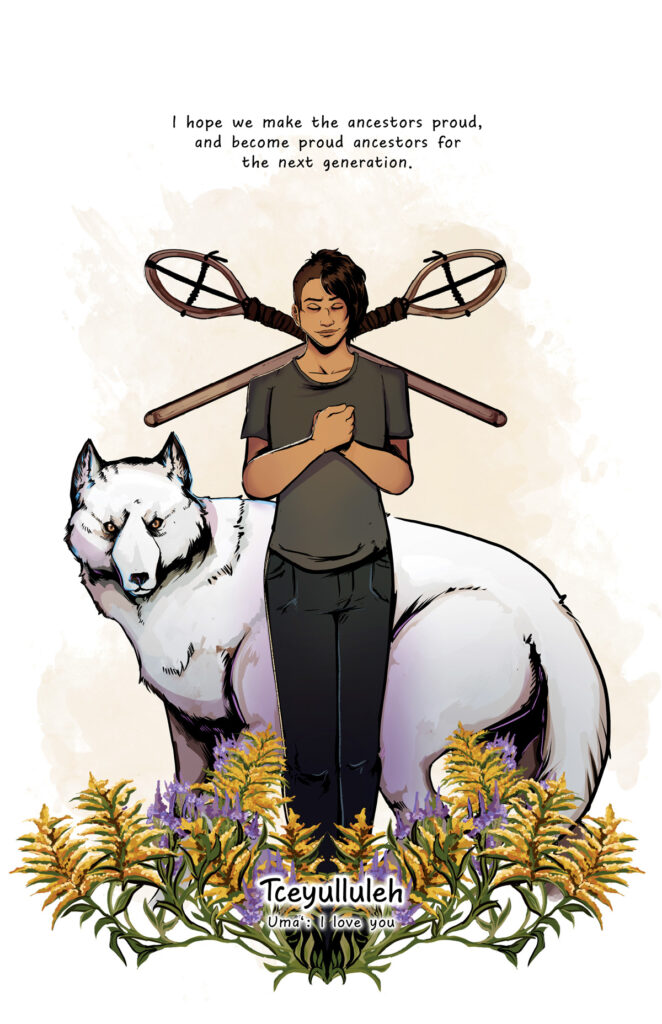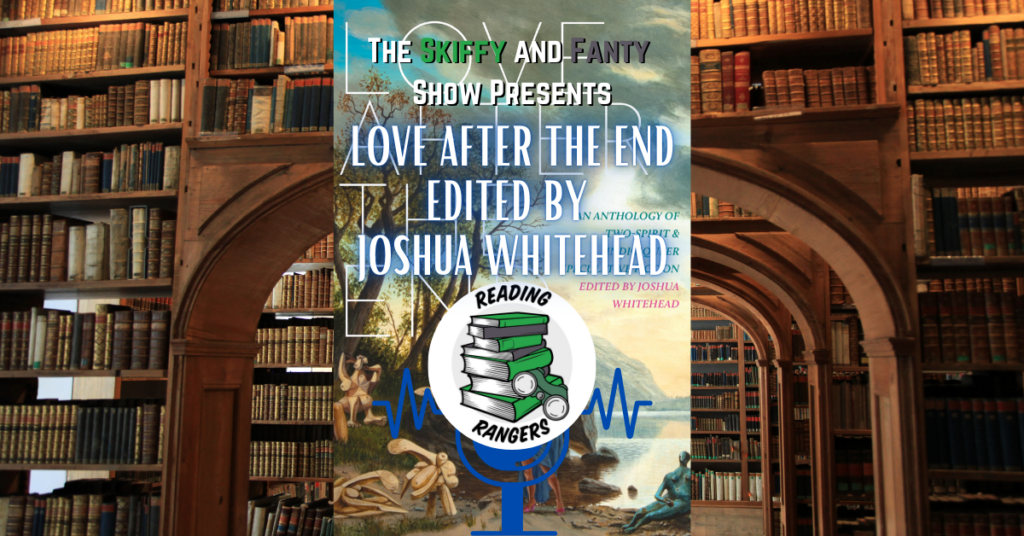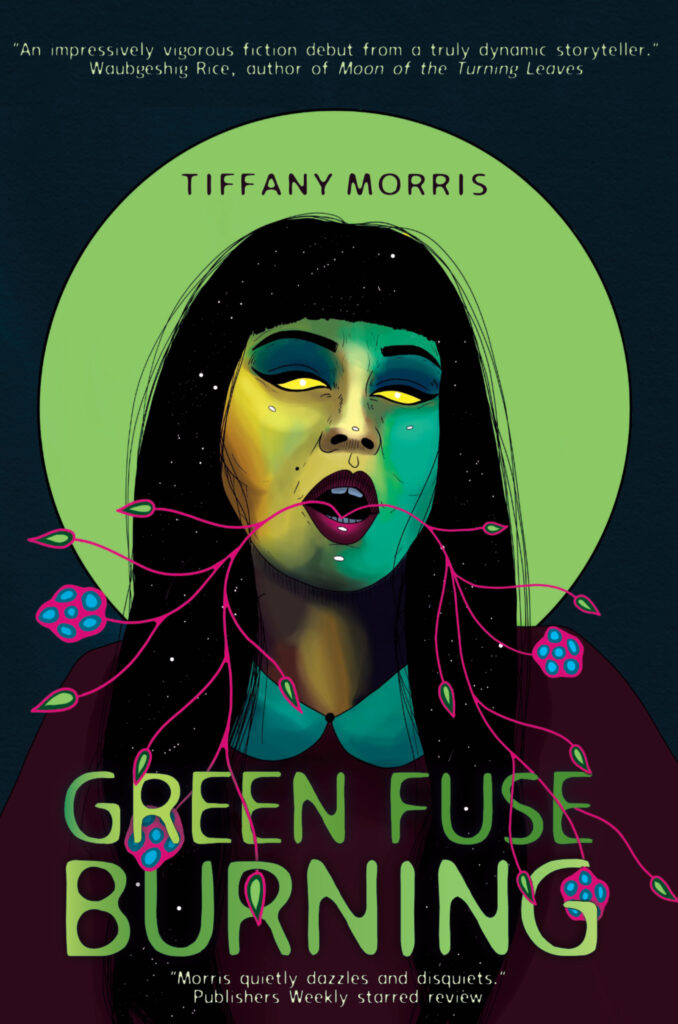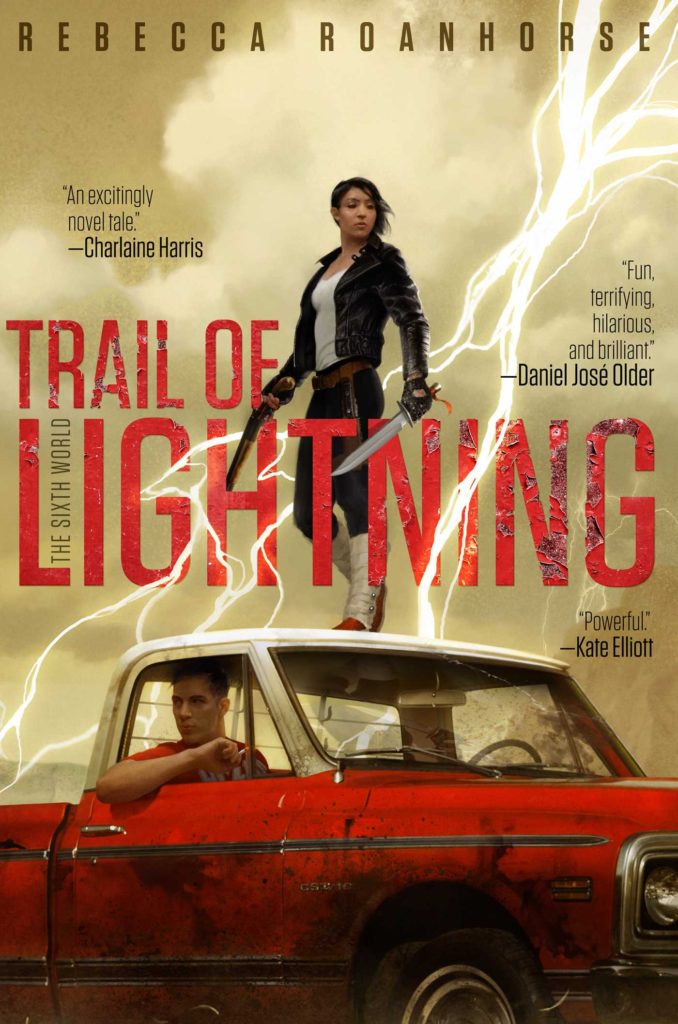Comics Review: Indiginerds: Tales From Modern Indigenous Life

The representation of Indigenous people in comics and in SF&F alike has historically been … as someone who’s not Indigenous, I’m just going to say that my understanding is that on balance, and despite some notable exceptions, it’s been not great. Viewed most frequently through the understanding and expectations of white creators and readers, the depiction of Indigenous characters has often been profoundly stereotypical. And whether those stereotypes were entirely negative or partly positive, they were reductive and limiting. Of course, Indigenous people have always been telling their own stories, but which stories were able to reach a wider audience was heavily influenced by the expectations of, again, white publishers, reviewers, and readers – and that means that the works that broke through often focused on present or historical Indigenous trauma.
But Indigenous people are more than their pain. Indigenous creators shouldn’t have to perform pain to be considered worthy of our attention.
791. Love After the End edited by Joshua Whitehead — Reading Rangers

https://media.blubrry.com/skiffyandfanty/dts.podtrac.com/redirect.mp3/archive.org/download/sand-f-791-love/SandF_791_Love.mp3Podcast: Play in new window | DownloadSubscribe: Apple Podcasts | Spotify | Android | Email | TuneIn | Deezer | RSSMother ships, bending time, and bioengineered rats, oh my! Daniel Haeusser and Trish Matson join forces to discuss Love After the End: An Anthology of Two-Spirit and Indigiqueer Speculative Fiction edited by Joshua Whitehead. Together, they explore the book’s themes of resistance and survival, the threads of utopianism throughout the stories, and much more! Thanks for listening. We hope you enjoy the episode!
Book Review: Green Fuse Burning by Tiffany Morris

In Green Fuse Burning, Morris takes Dylan Thomas’ theme of the intertwined nature of life and death in an endless cycle of time and applies it through a spectrum of ecosystems from the grandiose to the individual to explore the psychology of grief and guilt both personal and collective.
353. Rebecca Roanhorse (a.k.a. The Lightning Wielder), Trail of Lightning

https://media.blubrry.com/skiffyandfanty/dts.podtrac.com/redirect.mp3/archive.org/download/SandFEpisode353RebeccaRoanhorseTrailOfLightning/Sandf-Episode353-RebeccaRoanhorseTrailOfLightning.mp3Podcast: Play in new window | DownloadSubscribe: Apple Podcasts | Spotify | Android | iHeartRadio | Podchaser | Podcast Index | Email | TuneIn | Deezer | RSSCoyote, road trips, and ghosts, oh my! We’re very excited to start out Black Speculative Fiction Month with a fantastic interview with the Hugo, Campbell, and Nebula award winning Afro-indigenous author, Rebecca Roanhorse. Jen and Becca figuratively sit down with Rebecca to discuss how the Navajo creation story inspired the world-building of her debut novel, Trail of Lightning, how she created a space that was wholly absent of whiteness, why representation of Indigenous people in pop culture is particularly crucial, what her version of Coyote looks like, how Trail of Lightning fits into indigenous futurism, and so much more! We hope you enjoy the episode!
338. Indigenous Representation in Horror — A Discussion w/ Darcie Little Badger, Nathan Adler, and Stephen Graham Jones

http://media.blubrry.com/skiffyandfanty/dts.podtrac.com/redirect.mp3/archive.org/download/SandFEpisode338IndigenousRepresentationInHorror/Sandf–Episode338–IndigenousRepresentationInHorror.mp3Podcast: Play in new window | DownloadSubscribe: Apple Podcasts | Spotify | Android | iHeartRadio | Podchaser | Podcast Index | Email | TuneIn | Deezer | RSSJump scares, sacred stories, and contractions, oh my! Darcie Little Badger, Nathan Adler, and Stephen Graham Jones join Shaun Duke and David Annandale to discuss Indigenous Representation in Horror. Our guests share why they enjoy horror, who the real monsters of horror often are, especially given colonial history, what not to do when representing Indigenous stories, the violence inherent in cultural appropriation, and what both brings our guests hope and excites them about the horror genre. We hope you enjoy the episode! Note: If you have iTunes and like this show, please give us a review on our iTunes page, or feel free to email us with your thoughts about the show! Here’s the episode (show notes are below):
Signal Boost #21: Nathan Adler and Darcie Little Badger

http://media.blubrry.com/skiffyandfanty/dts.podtrac.com/redirect.mp3/archive.org/download/SandFSignalBoost21AdlerLittleBadger/Sandf–SignalBoost21–AdlerLittleBadger.mp3Podcast: Play in new window | DownloadSubscribe: Apple Podcasts | Spotify | Android | iHeartRadio | Podchaser | Podcast Index | Email | TuneIn | Deezer | RSSIn today’s episode of Signal Boost, we kick off our month of focusing on horror writers from traditionally marginalized communities. First up, Jen talks to Nathan Adler — artist, writer, Anishinaabe and Jewish member of the Lac Des Milles Lacs First Nation — about his novel, Wrist, how Anishinaabe stories informed the monster and how his identities contribute to the topics he explores. Then Darcie Little Badger — Lipan Apache writer and scientist — joins Jen to talk about indigenous futurism, how she uses horror to wrestle with her personal ghosts, and about her newest story, “The Whalebone Parrot,” and the history that informs it. We hope you enjoy the episode! Note: If you have iTunes and like this show, please give us a review on our iTunes page, or feel free to email us with your thoughts about the show! Here’s the episode (show notes are below):

